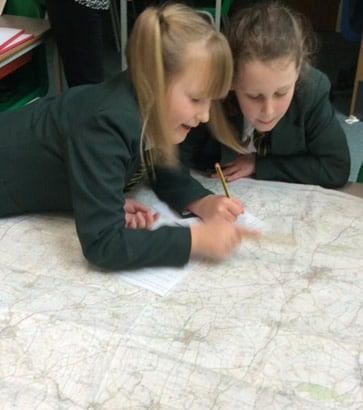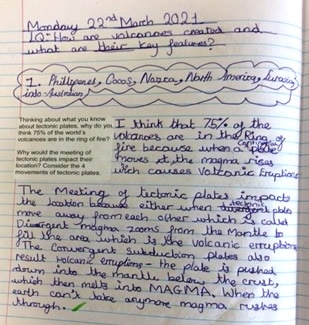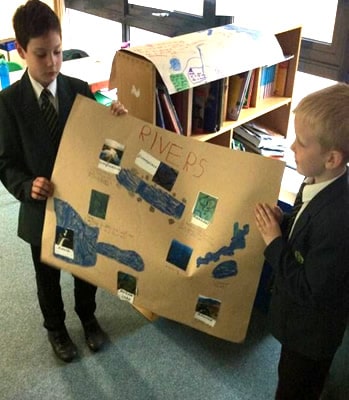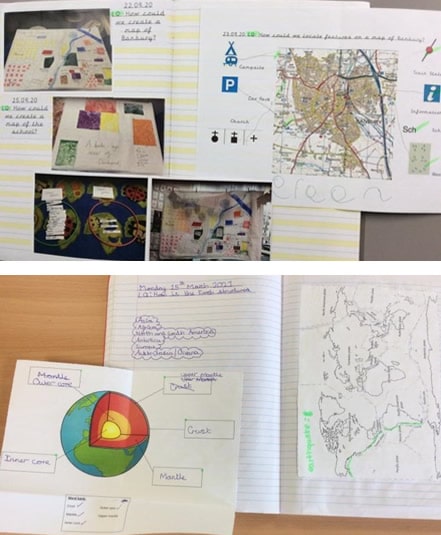Geography
Geography: Intent, Implementation and Impact
Intent:
 At Dashwood Banbury Academy we want to inspire pupils’ curiosity and fascination about the world and its people, places, resources and environments that will remain with them for the rest of their lives. We want our pupils to leave Dashwood with a broad and balanced knowledge of geography and a range of skills that can be applied to other areas of their lives. Our three whole school threads are:
At Dashwood Banbury Academy we want to inspire pupils’ curiosity and fascination about the world and its people, places, resources and environments that will remain with them for the rest of their lives. We want our pupils to leave Dashwood with a broad and balanced knowledge of geography and a range of skills that can be applied to other areas of their lives. Our three whole school threads are:
- To understand the Earth’s key physical features and human process and how these have changed over time
- To explain key similarities and differences between globally significant places
- To evaluate the impact humans have on the planet including our local environment
These threads are revisited and built upon progressively each year, in order to extend and further develop pupils’ skills throughout their time with us at Dashwood. Our whole school threads are interwoven throughout our units along with locational knowledge, human and physical geography, place knowledge and fieldwork and geographical skills.
We want our children to have positive educational experiences outside of the classroom too and have therefore ensured that each year group has an opportunity to complete some fieldwork, to connect with nature and develop their geographical skills.
Implementation:
We have a detailed geography curriculum that has a clear progression of knowledge and skills. Geography will be implemented in the curriculum in a variety of ways:
- It may be taught weekly or in a block. Learning objectives will be clear and well sequenced in order to build upon the skills each session.
- Lessons will begin with a Learning Question (LQ) which the children are required to answer throughout a lesson or sequence of lessons.
 Every year group will have a geography focus unit in Term 1. Geographical knowledge and skills will then be revisited multiple times throughout the year including: map skills, location and place knowledge, human and physical geography and fieldwork.
Every year group will have a geography focus unit in Term 1. Geographical knowledge and skills will then be revisited multiple times throughout the year including: map skills, location and place knowledge, human and physical geography and fieldwork.- Many geography outcomes link with other areas of the curriculum such as science, computing, art and history. For example, children in Year 3 link their unit on ‘The Stone Age’ to locations of pre-historic importance such as Skara Brae, Stonehenge and the cave paintings in Lascaux, France. Another example is where Year 5 use computing to create green screen presentations about worldwide cities.
- At Dashwood we provide opportunities for every year group to complete fieldwork which gives pupils’ an opportunity to get some real world experience and complete some learning outside of the classroom. Some examples of this include in Early Years where they go to forest school regularly and also complete listening walks, in Key Stage 1 they observe seasonal changes in the local environment and go to London. In lower Key stage 2 they go to Horley village, complete field sketches and go fossil hunting as well as completing activities on their residential trip. In upper Key Stage 2 they go to Greatworth Hall where they complete field sketches and observe and measure changes in trees as well as complete some residential orienteering activities.
 Each year group will have at least one place knowledge focus as part of their geography unit which is then compared to the local area or another place. For example, in Year 2 Banbury is compared to both London and Chembakolli, India. Whereas, in Year 6 geographical similarities and differences between North and South America will be compared. The place knowledge focuses start with local geography but could be a village, town, city, country or a continent. By the end of Year 6 pupils’ will have covered a wide variety of locations across the world in their units.
Each year group will have at least one place knowledge focus as part of their geography unit which is then compared to the local area or another place. For example, in Year 2 Banbury is compared to both London and Chembakolli, India. Whereas, in Year 6 geographical similarities and differences between North and South America will be compared. The place knowledge focuses start with local geography but could be a village, town, city, country or a continent. By the end of Year 6 pupils’ will have covered a wide variety of locations across the world in their units.- Human and physical geography is large part of the geography curriculum and enables pupils to understand how Earth’s processes work and how this leads to changes over time. In Year 1 they focus on weather and seasonal weather patterns, Year 4 focus on the water cycle and countries natural resources including trade and Year 5 look at natural disasters; volcanoes, earthquakes and tsunamis as well as the impact of these on people’s lives.
Intended Impact:
 For children to enjoy all aspects of the geography curriculum. Information will be gathered through pupil and staff voice surveys as well as through evidence in children’s books.
For children to enjoy all aspects of the geography curriculum. Information will be gathered through pupil and staff voice surveys as well as through evidence in children’s books.- Children will gain a greater understanding of the world, appreciation for it and connection to the world around them.
- To educate children on the impact humans have on the planet and how they can have a positive impact on the environment.
- Provide children with a range of experiences outside of the classroom and help them develop transferable 21st century skills.
- Pupil voice will show how much children enjoy the opportunity to complete fieldwork and learn all about the world.
- Books will show a wide range of tasks balanced with extended written work.
- Progress will be assessed through outcomes of assignments and a formative assessment will be given three times throughout the school year in our data collection points.

